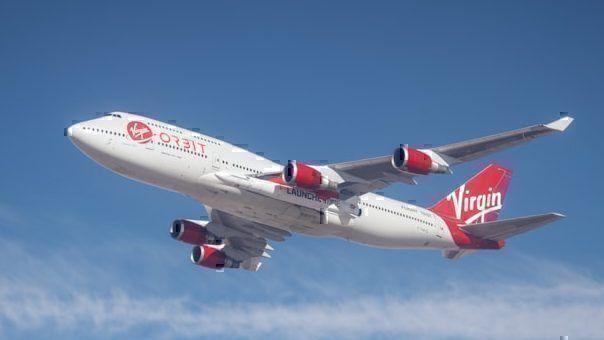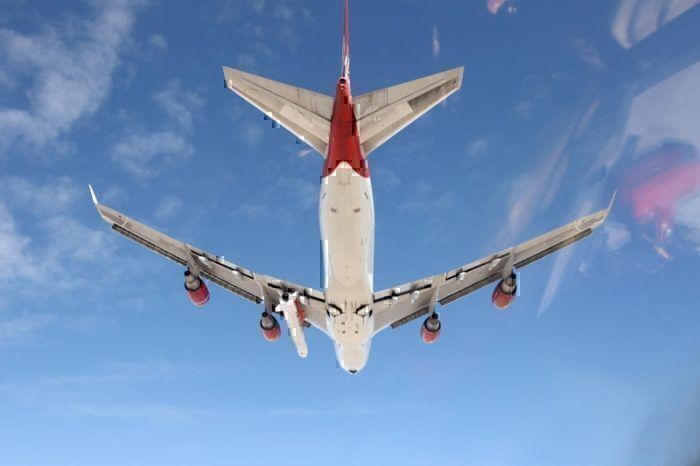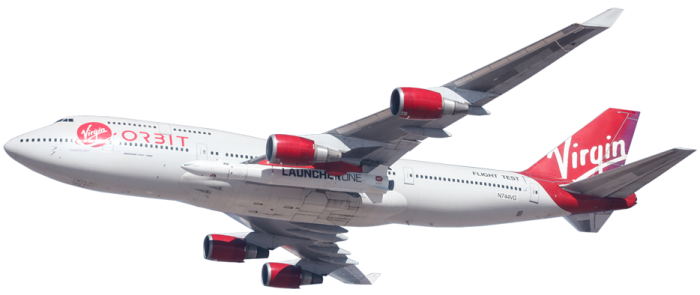We see a lot of Boeing 747s being retired these days. Some go to other airlines for a paint job and new life. Some go to a desert graveyard. Others go onto a new life doing something different. Richard Branson's Virgin Group has taken one of its old Virgin Atlantic 747s, transferred it across to Virgin Orbit via Virgin Galactic, and rejigged it to fire rockets into space. And why not? It's a better gig for the plane than ferrying cargo to for FedEx.
The Boeing 747-400 is known as Cosmic Girl. It is registered as N744VG. Between 2001 and 2015, the aircraft flew regular passenger services for Virgin Atlantic as G-VWOW. While the 747-400 operated passenger services, Virgin Atlantic leased the plane. In 2015, Virgin bought the plane and sent it across to Virgin Galactic.
Virgin Group's adventures in space
Virgin Galactic is the Virgin Group's flagship spaceflight business. You've probably seen promotional activity for the business and the experimental "spaceflights" undertaken in recent years from Spaceport America in New Mexico. The ambitious operation was almost derailed in 2014 when VSS Enterprise, a SpaceShip II, craft began to break up midair above California. One of the two pilots died.
But the business pushed on and in the years since appears to be settling into a niche. Nothing is straightforward in the Virgin Group's business structure. Various sister companies and subsidiary companies have sprung out of Virgin Galactic. One of those is Virgin Orbit.
Making space accessible
Virgin Orbit's key business is launching small satellites into space. Unlike say, NASA, it needs to do this in a cost-effective manner in order to attract customers. Virgin Orbit's website has this to say;
"Historically, small satellite operators have had little to no control over their launch schedules, and often never get an opportunity to launch at all. With only 90 flights to space in all of 2017, it’s clear that rideshares alone aren’t enough to provide the level of service and flexibility small satellites demand.
We think it’s about time the launch industry caught up. Virgin Orbit is here to set a new pace."
Virgin Orbit was set up in 2017. At that time, Cosmic Girl went across to them. It is now based at Long Beach Airport in California.
How the rocket launches work
Talking about rockets may catch people's attention, but fundamentally Cosmic Girl is a launch platform for small scale, miniaturized, and small satellites. And what launches the satellites? That's where the rockets come in.
It is an interesting second life for any 747. While satellite launches are par for course these days, Cosmic Girl is the first 747 to be used as a space launch vehicle.
On the left wing of a 747 is a fifth engine attachment point that's traditionally used to ferry spare engines. It is located between the fuselage and the left inboard engine. It neatly supports the LauncherOne attachment pylon.
It wasn't until 2019 that the first test drops were done from Cosmic Girl. Once fully operational, 21-meter satellite-carrying rockets will fire up after being dropped. During the July test flight, the booster fell to Earth (as planned) in a Californian desert.
Cosmic Girl will typically launch the rockets at 35,000 feet. The rockets will be able to carry satellites weighing up to 500 kilograms.
Virgin Orbit looks towards Japan
Working in collaboration with ANA and the Space Port Japan Association, Virgin Orbit is now looking at building a spaceport at Oita Airport in Japan as a base for Cosmic Girl and her satellite launches. There are tentative plans for a 2022 start date.
Virgin Orbit are also looking at sites in Cornwall and Guam as further launch sites.
It should be stressed that none of this is locked in. The Japan proposal is only at the feasibility study stage and would need to tick off several boxes before it happened.
But the idea raises interesting possibilities. It is part of a wider trend concerning the democratization of space. Ultimately, the Virgin Group wants to have a series of spaceports around the world. It is part of a broader plan to make access to satellites and their launch facilities cheaper and easier. As Virgin Orbit says;
We want to ensure we're enabling their next generation of world-changing space technology, while also bringing new space players into the fold.



